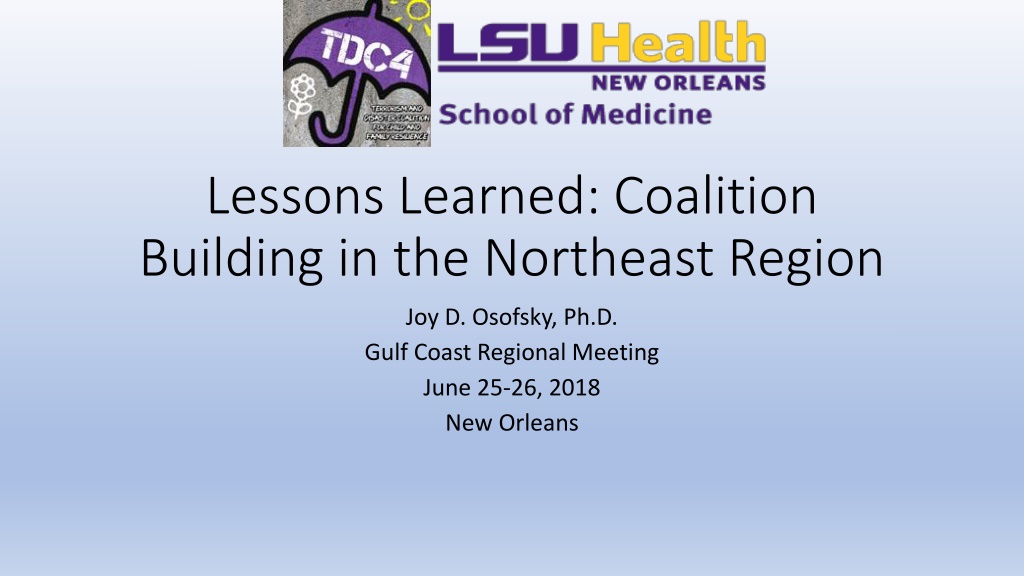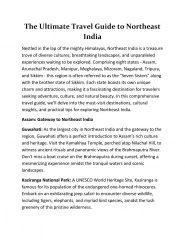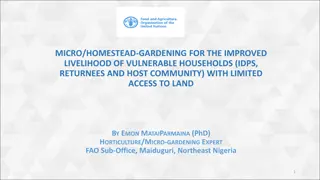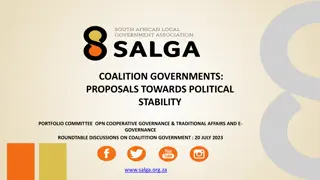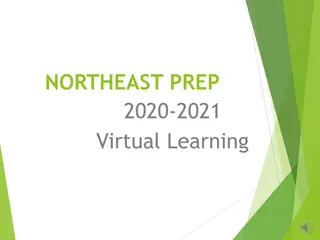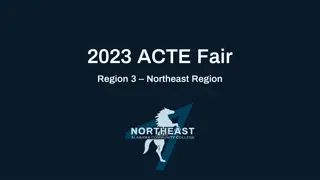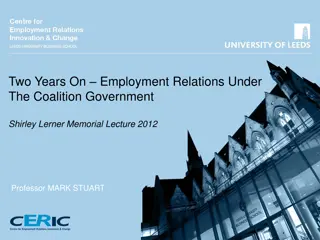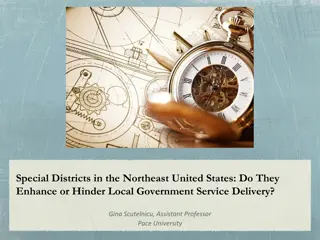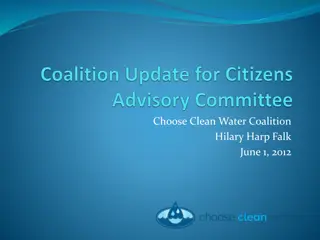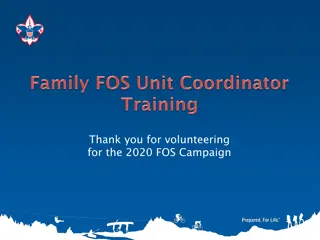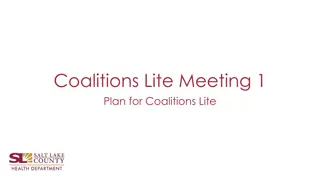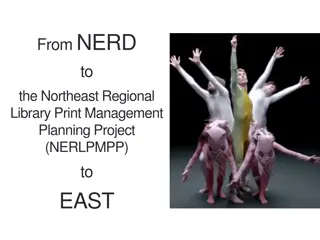Insights on Coalition Building in Northeast Region
Establishing effective regional coalitions in the Northeast region poses challenges due to varying concerns, participants, and stakeholder openness. Building trust through relationships and careful consideration of coalition members, especially beyond government entities, are key factors. Critical incidents like school shootings and disasters shape the focus, emphasizing the need for consensus on preparedness and response strategies.
Download Presentation

Please find below an Image/Link to download the presentation.
The content on the website is provided AS IS for your information and personal use only. It may not be sold, licensed, or shared on other websites without obtaining consent from the author. Download presentation by click this link. If you encounter any issues during the download, it is possible that the publisher has removed the file from their server.
E N D
Presentation Transcript
Lessons Learned: Coalition Building in the Northeast Region Joy D. Osofsky, Ph.D. Gulf Coast Regional Meeting June 25-26, 2018 New Orleans
Concerns and Participants Differ Across States More than on the Gulf Coast Stakeholders How to understand collaborations Openness to collaboration differs especially across states Issues of major concern appear to be different and vary across states Who should be involved differs Examples from New York, Connecticut, New Jersey Pennsylvania
The Importance of Relationships It takes time to develop trust and form meaningful relationships What s the best way to do this in a region where you have lived, consulted on disasters and terrorism, presented on the effects of trauma on children and families but have not worked directly What are ways to gain trust and to be helpful to the region The best way seems to be to depend upon past and ongoing relationships
Who should be part of a Regional Coalition to make it most effective A multidisciplinary group ranging from government (emergency management) to stakeholders We were advised to be careful depending on government and political leaders as they can change and there goes the coalition Mainly listen! We learned as expected about the issues of concern in building this new regional coalition
Main issues of Concern Critical Incidents using that word instead of terrorism Includes for many, school shootings that are common in in some of the urban centers School lockdowns Disasters are also a concern in some of the states but not all where individuals responded to Superstorm Sandy affecting the coast and the multiple nor easters But it seems different than on the Gulf Coast again listen and don t share expertise right away
Should the Coalition be within a state or across states? Who should decide? Who should be part of Coalition to make it most effective? It s crucial to listen and learn how people/stakeholders think about violence, terrorism, and critical incidents; there seems to be more general consensus related to disasters but not preparation We also learned how violent incidents are perceived across different groups If a Muslim is involved, it considered terrorism If a Black person is involved, drugs and violence are assumed If a white person is involved, the assumption is that it s related to mental illness
Progress in Coalition Building has been Made! In July, we will be having a regional coalition meeting in New Jersey that will be joined by colleagues from Philadelphia and Delaware and possibly some from New York The next week of July, we will be having a state regional meeting in Connecticut Future plans One or two meetings in New York More talks, relationship building and planning in Massachusetts Question whether there will be a Northeast regional meeting but rather meetings within in across a few states
